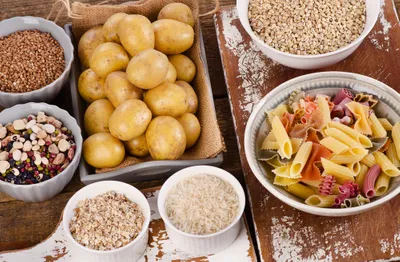Bad breath is something everyone can relate to. Whether it’s a result of just having woken up in the morning or eaten food with garlic in it, it occurs very frequently.
Halitosis—the medical term used to describe chronic bad breath—is also quite common, affecting 25% of people worldwide, according to Medical News Today. Unfortunately, however, a quick brush of the teeth may not easily rid of it, as some of its causes extend beyond simply having consumed something pungent.
While bad breath often starts in the mouth, there are many possible causes. Let’s take at six of the most common contributing factors for halitosis.
1. Foods and Beverages
As with casual bad breath, halitosis can also be caused by the foods a person consumes. According to the Mayo Clinic, this is because “the breakdown of food particles in and around your teeth can increase bacteria and cause a foul odor.” These foul odors are particularly pronounced after having eaten foods such as onions, garlic and certain spices because “after you digest these foods, they enter your bloodstream, are carried to your lungs and affect your breath.”
The National Health Service also adds that drinking beverages like coffee and alcohol, which have strong odors, can be other contributing factors to chronic bad breath.
2. Smoking and Other Tobacco Products
It’s no secret that smoking is bad for you. Consuming tobacco products, whether they are cigarettes or oral products like chewing tobacco, causes a laundry list of negative effects on the body—including bad breath. Smoking also increases the likelihood of a person developing gum disease, which the National Health Service says is another major cause of bad breath.
Additionally, consumption of tobacco products can lead to other oral health issues such as staining of the teeth, irritation of gums, and reduction in sense of taste. Yet more reasons to kick this habit to the curb!
3. Poor Oral Hygiene
I’m certain you can recall being told about the importance of regularly brushing and flossing your teeth by the dentist. And while it may seem annoying to be reminded of this at every visit, its importance cannot be overstated—especially when trying to combat halitosis.
Consistent brushing and flossing helps to remove food trapped in the teeth and gums before it decays and causes an unpleasant odor. Additionally, brushing removes plaque, a sticky film of bacteria that forms on the teeth. If not addressed, this buildup can cause cavities and periodontal disease, according to Healthline.com. The source also says that improper daily cleaning of dentures can be another contributor to bad breath.
4. Dry Mouth
Saliva is essential to the mouth’s health, as it helps to clean away odor-causing particles. With a condition called dry mouth (known medically as xerostomia), however, saliva production is decreased. According to the National Health Service, this can cause “more bacteria than normal to build up in your mouth, as well as a change in the types of bacteria,” which can lead to bad breath.
“Dry mouth,” the Mayo Clinic says, “occurs during sleep, leading to ‘morning breath,’ and it worsens if you sleep with your mouth open.” Chronic dry mouth, though, is often caused by a problem with the salivary glands.
5. Medications
Some medications, such as those used to treat high blood pressure or urinary conditions, can cause halitosis by contributing to dry mouth. Others can “be broken down in the body to release chemicals that can be carried on your breath,” says the Mayo Clinic.
The National Health Service adds that medications such as tranquilizers, some chemotherapy medications, and those containing nitrates (sometimes used to treat angina), are among the most common contributors to bad breath.
6. Low-Carb Diets
For those trying to lose weight, a low-carb diet may seem like an effective way to achieve their goals. Unfortunately, halitosis is often a side effect of removing such foods from your diet. According to WebMD, this is because of chemicals—called ketones—that are “released in the breath as the body burns fat.” And entering into this fat-burning state of ketosis is “the hallmark of the Atkins diet,” as well as the newly popularized ketogenic diet.
The WebMD article’s source, Kenneth Burrell, DDS, goes on to say that when carbohydrates aren’t available, “you start to use other fats and proteins as your source of energy, and as a result you are going to get a breath problem.”









